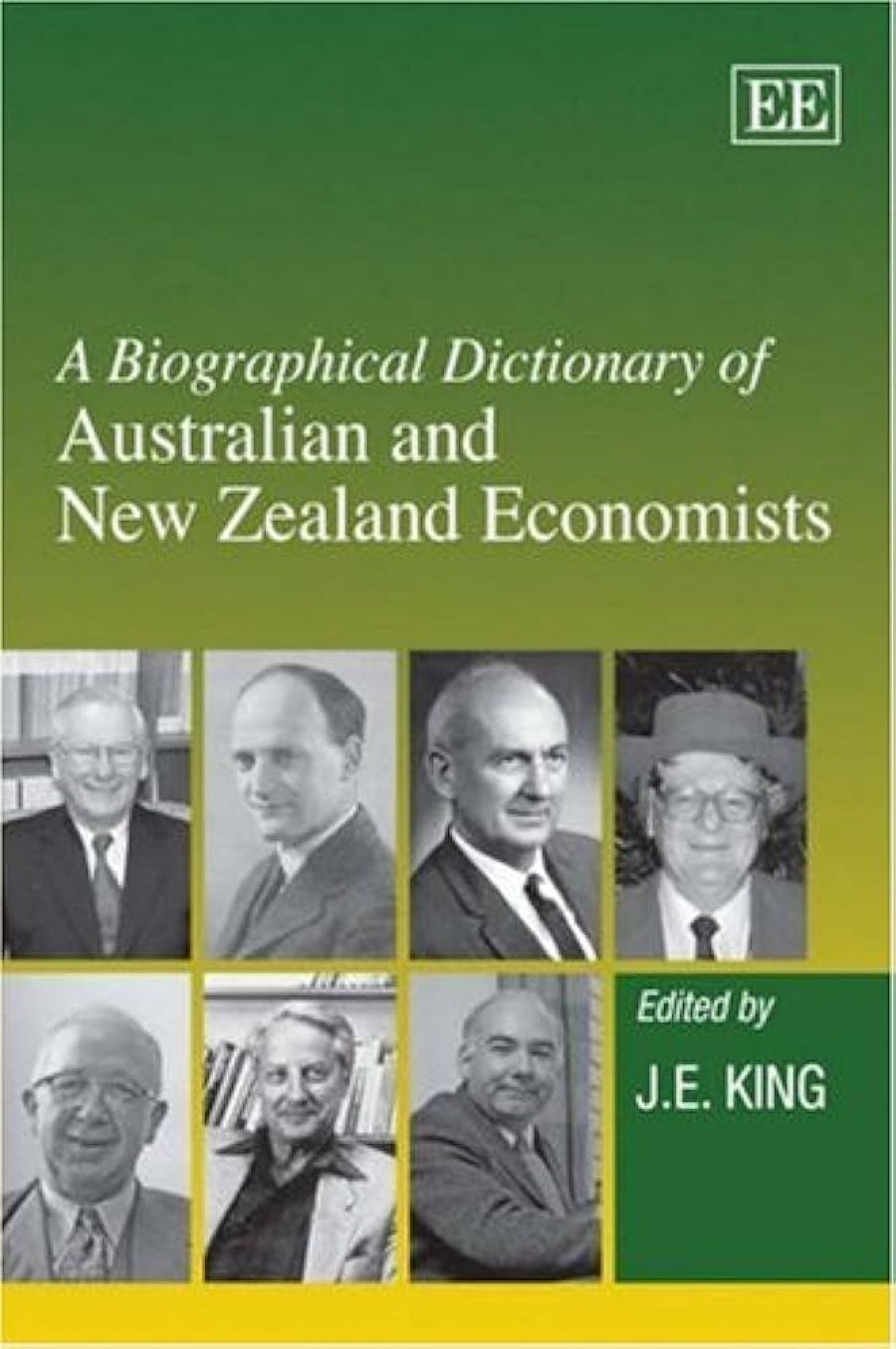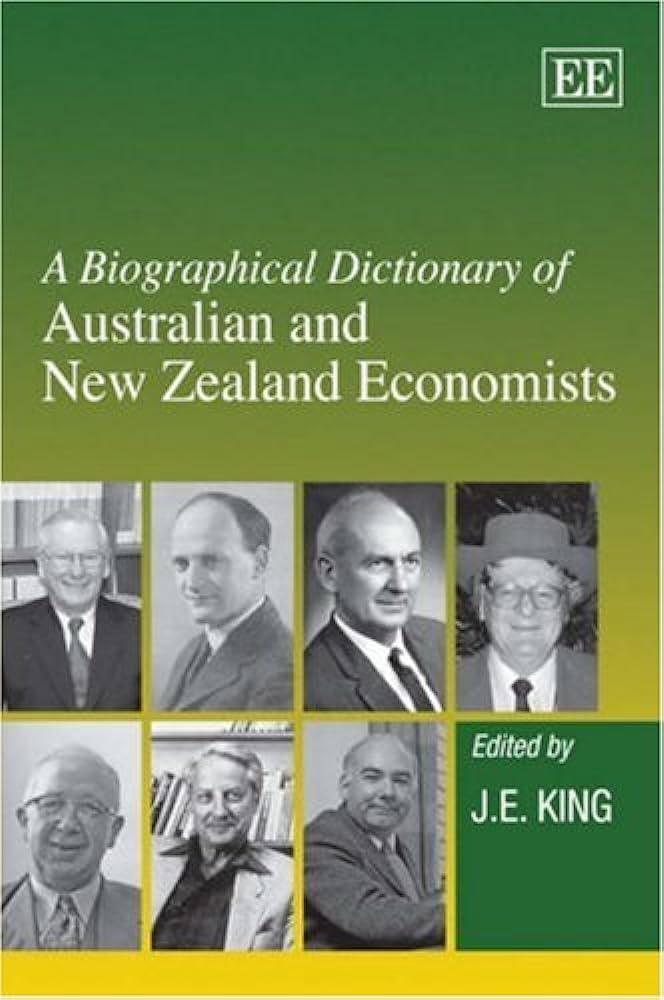
- Free Article: No
- Contents Category: Economics
- Custom Article Title: Herd mentality
- Review Article: Yes
- Article Title: Herd mentality
- Online Only: No
- Custom Highlight Text:
In all intellectual disciplines there is a tendency to run in herds. It is the line of least resistance; it offers personal and professional rewards; and sometimes the herd, if capably led, is impressive in the way it rushes so quickly in the appropriate direction. The herd is often correct; but when it is on a stampede, is does not easily change course. This is a biographical dictionary of those Australian and New Zealand economists who often led – or opposed – the herd.
- Book 1 Title: A Biographical Dictionary of Australian and New Zealand Economists
- Book 1 Biblio: Edward Elgar, $85 hb, 360 pp, 9781845428693
- Book 1 Cover Small (400 x 600):

- Book 1 Cover (800 x 1200):

While the book is more about economic doctrines than idiosyncrasies, some of the personal sidelights are revealing. D.B. Copland, one of the towering figures in Australian economics, was born on a farm in New Zealand. The thirteenth child, he had ‘an allergy to horse hair’ and thus was largely excused from work on the farm in that era when draught horses were vital for daily work. Later, ‘a lesion of his heart valve’ gave him exemption from joining four of his brothers in World War I. It is not in the book, but Copland used to be an early-morning shopper at the Queen Victoria Market in Melbourne, which made him seem almost human in his wartime task as the nation’s commissioner of prices. When young, we found him rather stem and even Olympian.
Why has Australia produced or been the arena for so many influential economists? The book does not offer a direct answer. One reason must be the deep economic troubles which the nation has periodically faced. In the Depressions of the 1890s and 1930s, Australia suffered more than most, and therefore the debates about potential solutions put a premium on formal economics. Similarly, in a difficult natural environment, the drastic ups and downs of agriculture and mining created regional and national booms and slumps, and many economists were called in to help or freely shouted their advice over the fence. Incidentally, Ross Garnaut, one of the latest economists to be summoned to Canberra, is the author of an essay in this book, on Sir John Grenfell Crawford, who, like Copland, came from an up-country family consisting of at least eleven children.
Economics is a kind of boxing ring in which ideas wear the gloves. Most ideas do not dominate for long. The editor quotes with approval the London economist Lord Robbins, who insisted on the need to study ‘the vicissitudes of thought in the past’. One of the merits of this ‘Biographical Dictionary’ is its indirect recital of lost causes and, equally important, those ideas that die and are born again. In Australian academic economics, free trade reigned in 1900, was almost consigned to the cellar by 1950, and now rides high.
The books shows how rough can be the path for economic reformers. Thus the agricultural economist Bruce Davidson opposed the CSIRO’s ardent support for rural development in tropical Australia in the 1960s, especially its Ord River irrigation scheme. One of his observations – ‘seemingly innocuous’ but of profound important – was that trials of cotton and other crops in small experimental plots deceptively produced far higher yields than occurred in the real world of big acres. Davidson left his employer so that he could be free, in 1965, to publish his important book Northern Myth.
The book covers 130 economists, none of whom is alive. A surprising omission is Brian Fitzpatrick, whose economic histories of Australia had a marked influence on the mid-century students. Another defect is the sparse oneline biographies of the contributors themselves. Many readers, too, will pick up minor errors of fact, some of which stem from printing or editorial mishaps. For example, Keith Frearson, an engaging lecturer as he stood at the Monash lectern in his red and white socks, is allowed to die in 2000 and then again two years later. Since Frearson – according to the fascinating essay by Geoffrey Harcourt – was ‘an extraordinarily funny, witty person’, he would have seen it as a joke.
The book has distinct merits. To read it page by page is to learn much about the economic history of Australia and New Zealand, about the changing fashions in important ideas and, above all, about the lives of the main combatants in what might still be seen by many as the most advanced of the social sciences. While it is now a frequent complaint that modern economists are more at ease with algebra than prose, most essays in this impressive volume challenge that statement. J.E. King, the general editor, is a professor of economics at La Trobe University. The book does credit to him and all his fifty or so contributors, not least because it is fair in spirit.


Comments powered by CComment